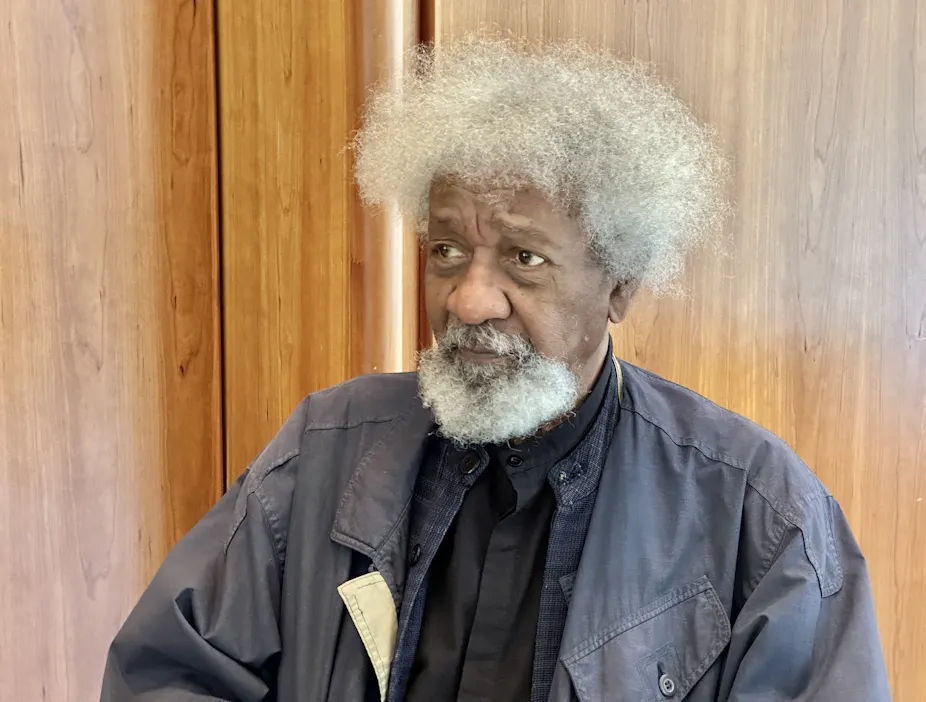We begin the week with a look at “Cynghanedd,” the Nobel Laureate Wole Soyinka who has just turned 90 and the book festivals distancing themselves from companies involved in climate issues.
Ancient Poetry Form Brought to the Mainstream by Welsh Singer
 Llio Heledd, a talented Welsh artist, has just released her first solo album. Titled Afon, it is a little different to many albums on the market at the moment as it uses an ancient form of Welsh poetry that the singer learned from her father.
Llio Heledd, a talented Welsh artist, has just released her first solo album. Titled Afon, it is a little different to many albums on the market at the moment as it uses an ancient form of Welsh poetry that the singer learned from her father.
Welsh is the first language of Llio, who studied at the University of Aberystwyth and also Utrecht university. She now lives in Cardiff and writes songs and poetry in her spare time. The Welsh form of Cynghanedd is used frequently in her work.
Translating literally as “harmony,” cynghanedd is a basic method of sound-arrangement that appears in one line and uses alliteration, stress and rhyme. There are various forms of this that show up in the definitions given to all formal types of Welsh verse, including awdl and cerdd dafod. Cynghanedd is ancient in origin but is still a popular tool used by Welsh poets today.
It is also something that over the years has been experimented with by a number of poets in English-languages versions. Gerard Manely Hopkins was particular fond of experimenting with it and there are influences of cynghanedd in some of the works written by Dylan Thomas.
Wole Soyinka at 90
 Tributes have poured in from all over the world this weekend to celebrate the 90th birthday of Wole Soyinka, the first Nobel Laureate of Black Africa.
Tributes have poured in from all over the world this weekend to celebrate the 90th birthday of Wole Soyinka, the first Nobel Laureate of Black Africa.
Born Akinwande Oluwole Soyinka, the author, activist and poet has worked tirelessly over the years in the struggle for human rights and justice his attitude is an embodiment of literary excellence and unrelenting activism.
From his earliest poems and plays to his more recent speeches and essays he has consistently tried to address difficult topics like human rights abuse, social injustice and political corruption. All of this has often been at risk of his own personal safety.
He grew up in colonial Nigeria and was exposed to much inequality and oppression from an incredibly early age. His education took him to University College Ibadan, where he studied Greek, English Literature and Western History. He learnt much about African oral traditions and folktales during his early years, all things which inspired his work in later life.
He was influenced by the work of J.P. Clark-Bekederemo and, in turn, inspired several younger poets along the way.
He was awarded a Nobel Prize for Literature in 1985, the first Black African to be awarded this particular honour.
National Poet of Scotland Believes Book Festivals are not Target for Climate Activism
 Kathleen Jamie, the Makar or National Poet of Scotland, whose poetry is inspired by the natural world, has been speaking out about book festivals and the place they appear to be taking in climate activism. This comes after the Hay Festival dropped a sponsor as a result of pressure from Fossil Free Books, and the decision made shortly after was that the Edinburgh Book Festival would follow suit. The sponsor involved is believed to be a company that invests in businesses involved in the gas and oil industry and also in Israel. This is a situation she feels very strongly about but believes does not have any place being linked to festivals.
Kathleen Jamie, the Makar or National Poet of Scotland, whose poetry is inspired by the natural world, has been speaking out about book festivals and the place they appear to be taking in climate activism. This comes after the Hay Festival dropped a sponsor as a result of pressure from Fossil Free Books, and the decision made shortly after was that the Edinburgh Book Festival would follow suit. The sponsor involved is believed to be a company that invests in businesses involved in the gas and oil industry and also in Israel. This is a situation she feels very strongly about but believes does not have any place being linked to festivals.


You must register to comment. Log in or Register.